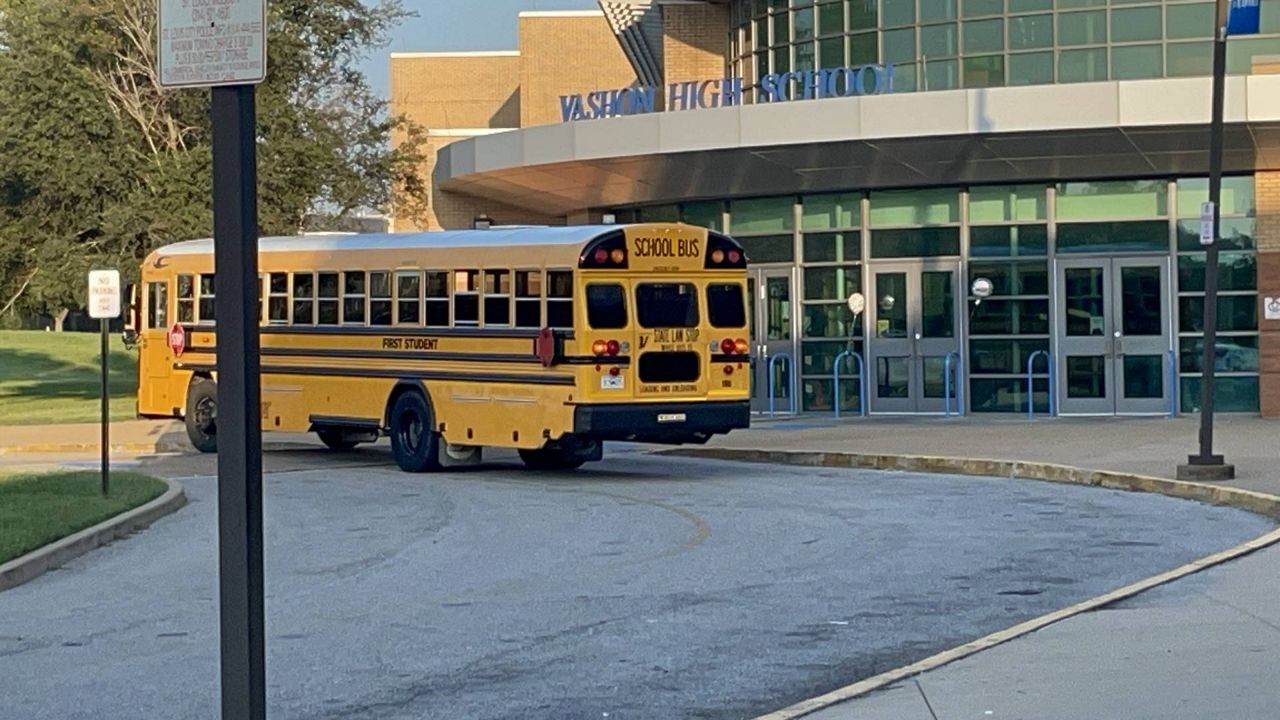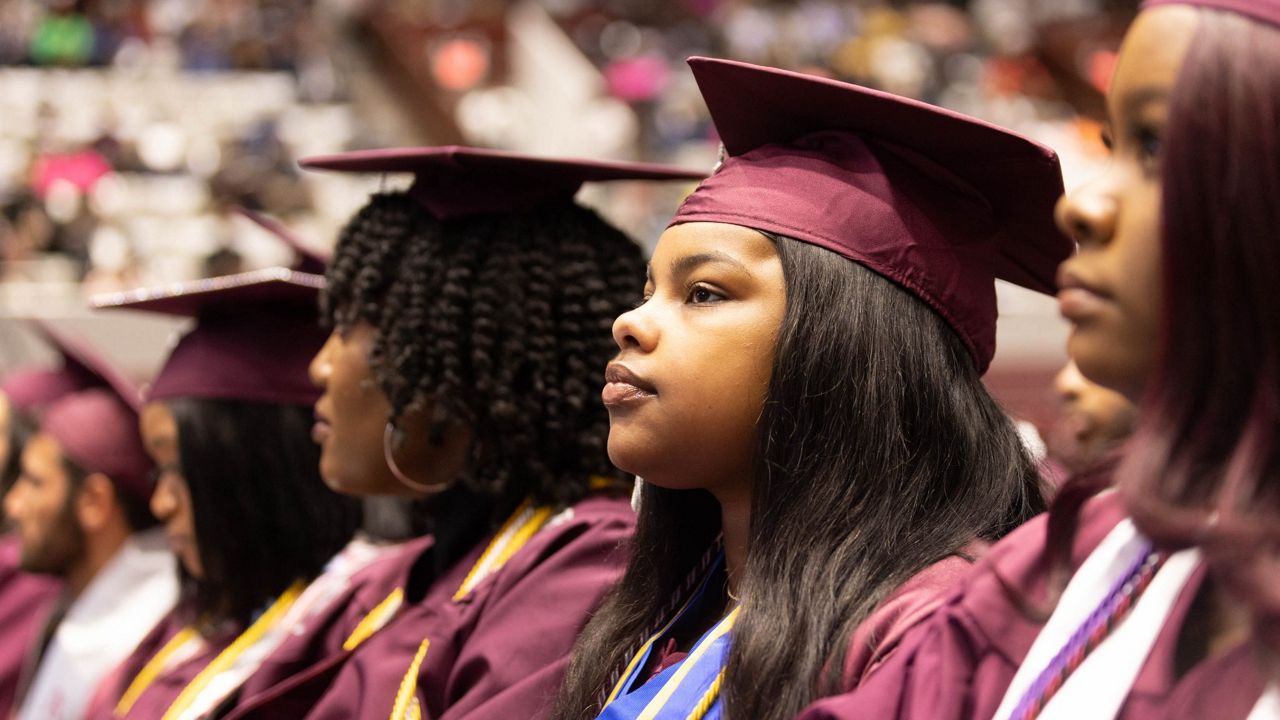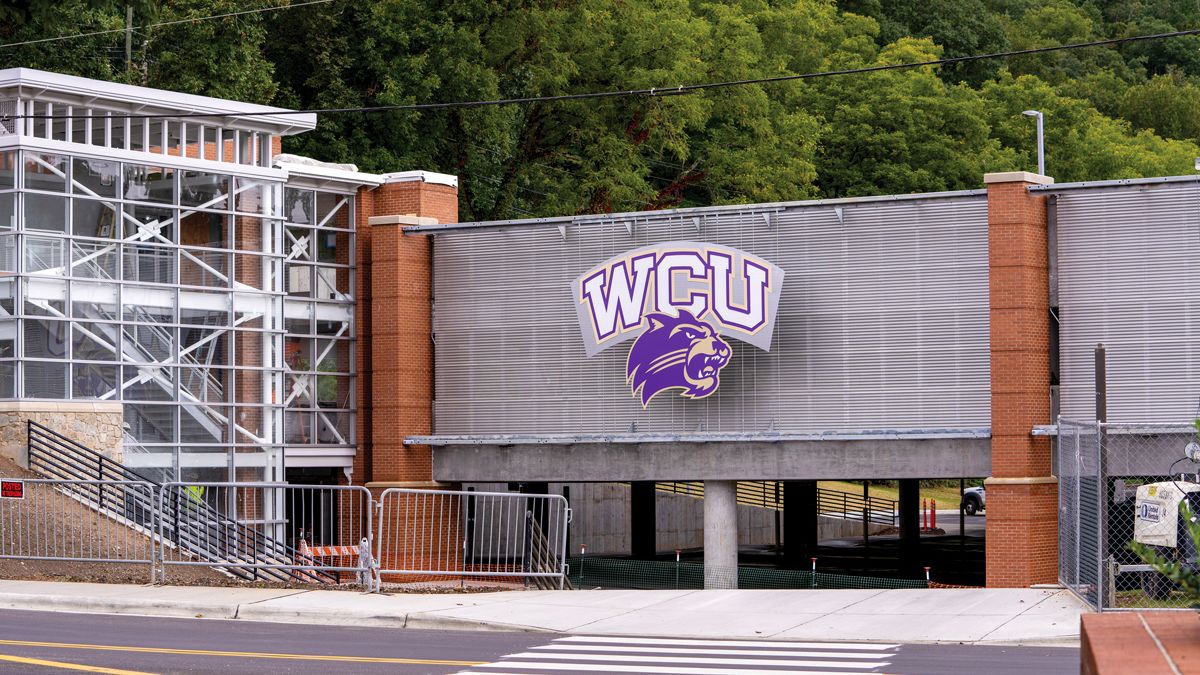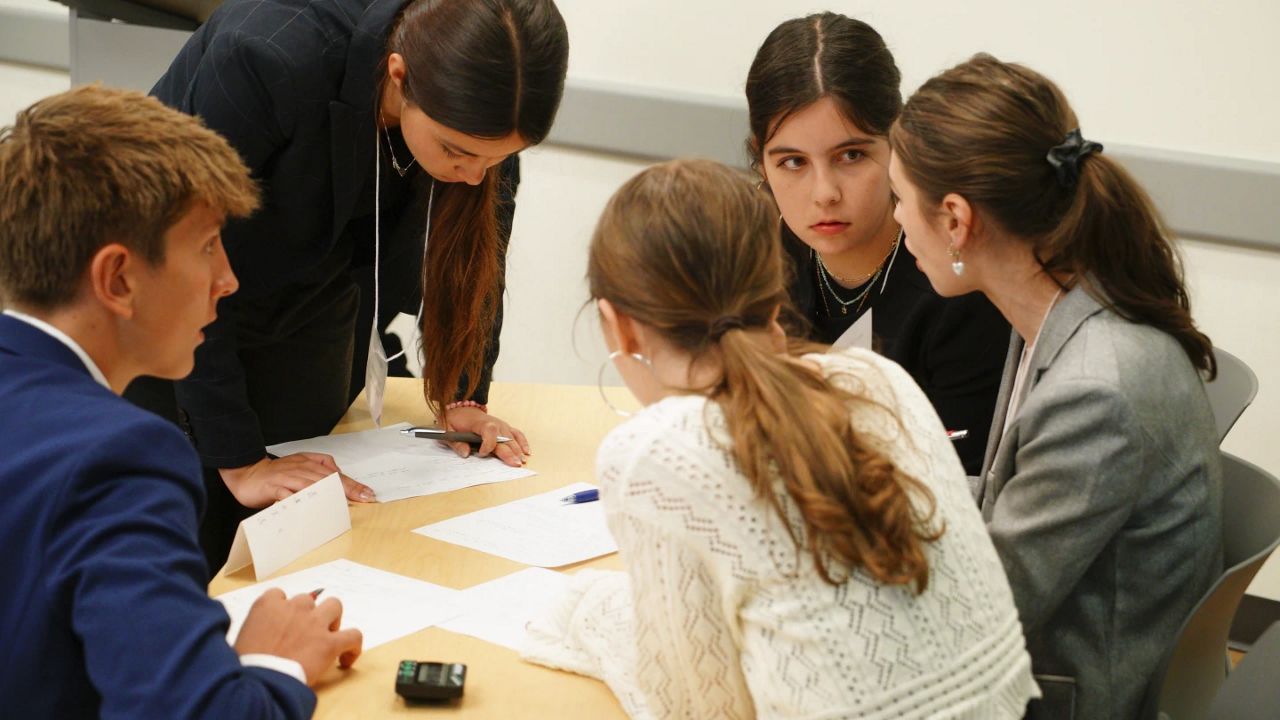KERNERSVILLE, N.C. — Students as young as kindergarten are working toward becoming bilingual.
What You Need To Know
- N.C. ranks in the top five for dual language immersion programs in the country
- Students K-9 currently are able in Forsyth County Schools to works toward becoming bilingual in a DLI program
- Classes in the program are only taught in Spanish
- OLEA and other departments are incorporating North Carolina in a nationwide project on DLI
East Forsyth Middle School is taking part in a program that is receiving national attention. The middle school’s Dual Language Immersion program has attracted the attention of the U.S. Department of Education’s Office of English Language Acquisition and other programs, such as NCDPI.
Dual Language Immersion, or DLI, allows students to learn their dual language of Spanish while also being engulfed in different cultures.
“Our kindergartners, they come in from a two-way program where the target language of Spanish is taught to them, and it is using as much of their intelligences as possible. What they may not know in the target language through bodily kinesthetic movement, through repetition, they eventually are completely soaked in with the language as they continue with the program. The cultural piece becomes a big part of what happens in regards to what they're learning,” said Shiwanah Bangham, principal of East Forsyth Middle School.
North Carolina ranks in the top five states in the country for dual language immersion programs, according to a 2021 study by the American Councils for International Education.
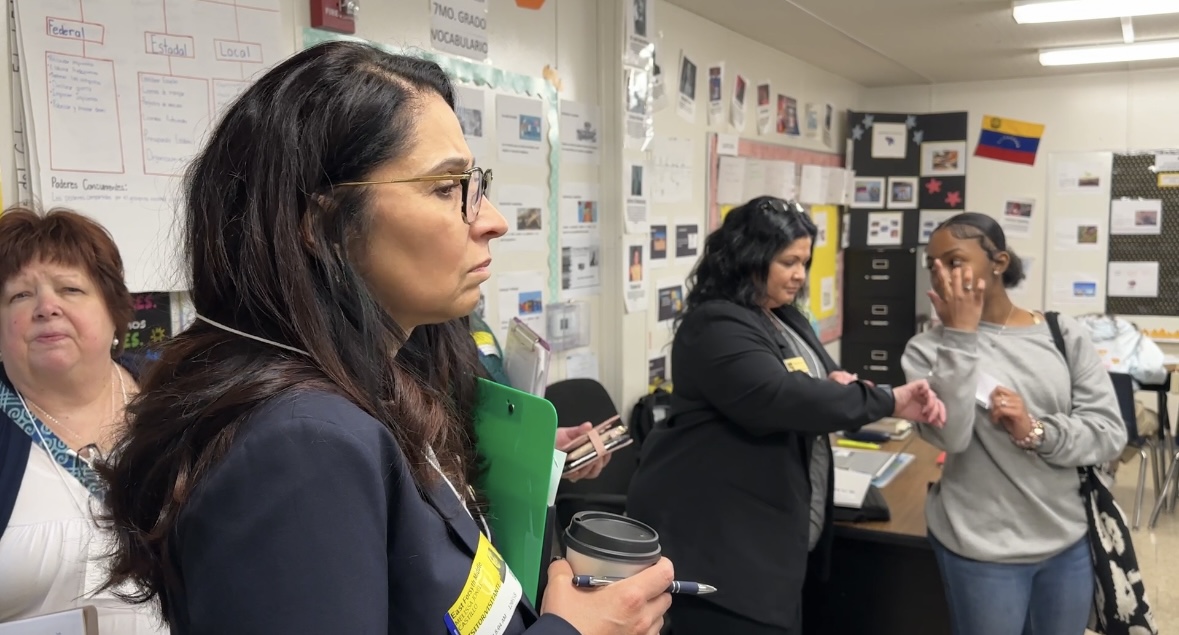
Around 90 students at the middle school are taught a few core classes along with a Hispanic heritage class in Spanish to help immerse them in the language and culture.
“When you see our students able to communicate in both English and Spanish without stopping, they hear both things happening simultaneously. That's the product of what you have that this program can offer. So I'm proud,” Bangham said.
One of the teachers, Señor Jose Orellana, taught in Puerto Rico for many years, before joining the DLI program in the Triad a few years ago.
“The difference is this place is multi-cultural, in Puerto Rico they were always Puerto Rican. In the United States, I have students from Colombia, Venezuela, Ecuador,” Orellana said.
Different teachers of the program have different backgrounds, which allows the students to learn more history on the culture of their teacher, as well as the way language is crafted from that country.
“They travel around the world through our dual language program from kindergarten and now currently all the way to ninth grade, we have our very first cohort that is in the ninth grade, and they are doing science now in Spanish," said Janet Materdo, Winston-Salem Forsyth County Schools District Teacher of the year and assistant principal of Mount Tabor High School.
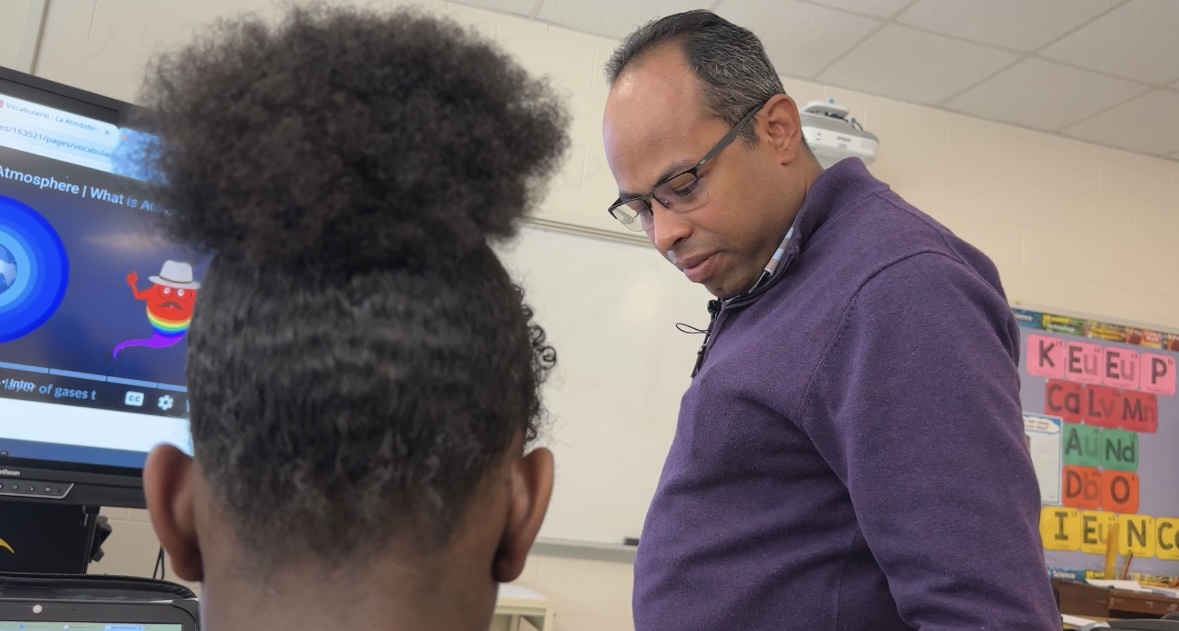
Some of the students in the immersion program come from households that have ties to a Hispanic background, while others do not.
“We are impacting our community in ways that I think it is almost unimaginable. And our students, these students are going to be ambassadors once they leave, once they graduate from middle school and then move on to the high school and into higher education, they're going to be able to impact the workforce. I always teach them that you take dual language with you, and you talk about it wherever you go,” said Materdo, who taught in the DLI program.
Students are able to receive high school credit through the Hispanic Heritage class, and if the student completes the program, they will receive a biliterate certificate seal on their high school diploma, meaning they are academically bilingual.
“They receive the same material and the curriculum, the difference, make the same in Spanish and because they lay their curriculum in English,” Orellana said.
Orellana, who teaches science classes for sixth through ninth grade in the DLI program said classroom tests are given in Spanish, while state tests are given in English, forcing the students to learn and understand vocabulary and sentence structures in both languages.
Around 10 schools in the area participate in the program, with more possibly on the way. As the cohort class from East Forsyth Middle School continues their education through high school, the program will expand to fit their needs.
“They have the ability to communicate with so many people in an area like North Carolina where the rate of Spanish speaking citizens is growing rapidly, that sets them apart,” Bangham said.
Students do not have to join the program in kindergarten, although it is highly encouraged, and students who may only speak Spanish who transfer can use the classes as a stepping stone into English taught courses. Morning announcements are also made in Spanish.
North Carolina, along with California, New York, Texas and Utah, have been invited to participate in a national DLI project being organized by the OELA and other regional comprehensive centers.







